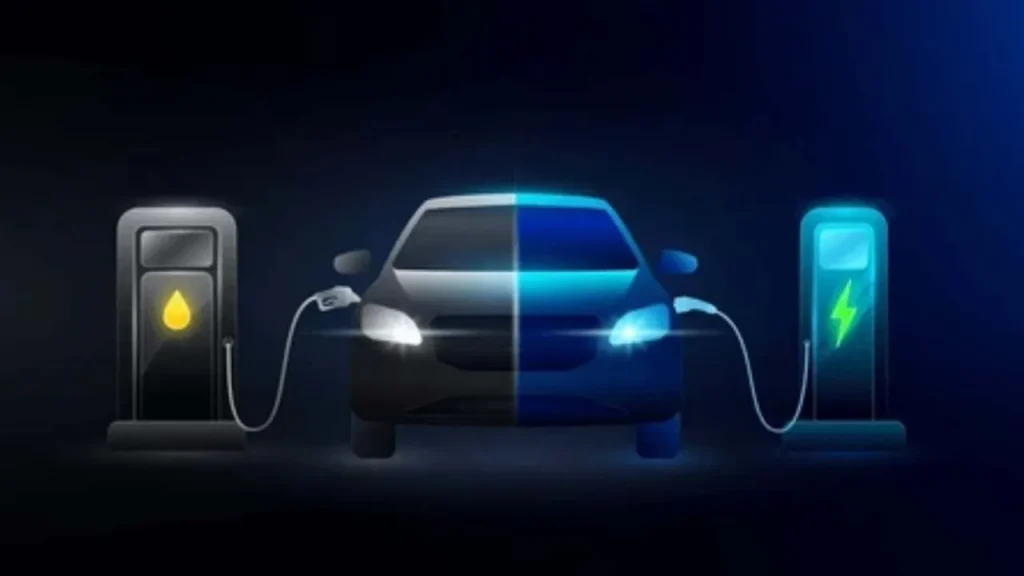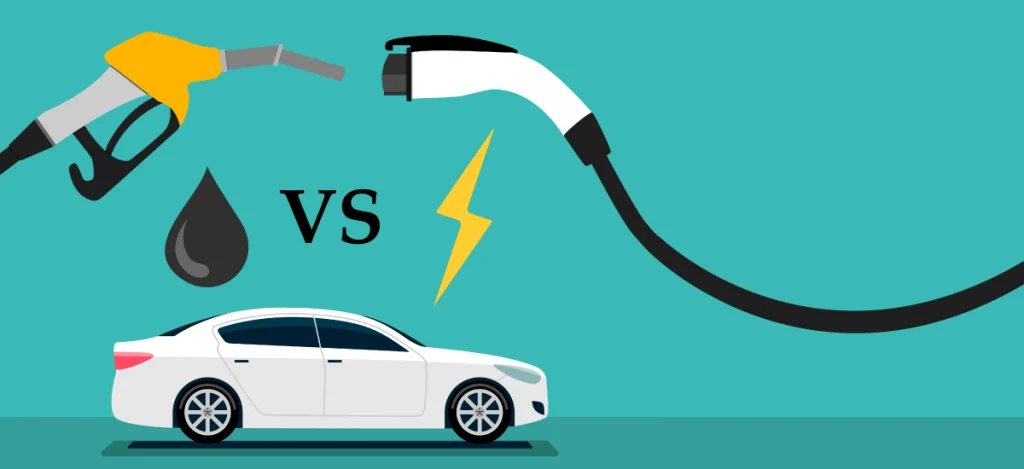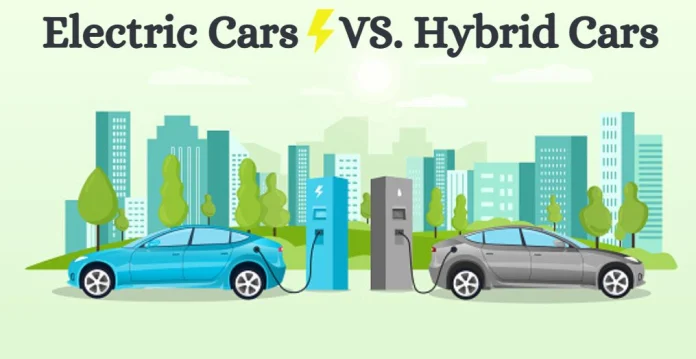Hybrid vs. Electric Vehicle: Each type of automobile has its own pros and cons of its own. However, the dilemma of which car to purchase still comes up. Let’s discuss the differences and determine which vehicle is best for you.
Electric vs. Hybrid Car: With gas and diesel costs surging and environmental regulations tightening, consumers are faced with the difficult decision of whether to purchase an electric or hybrid vehicle. Each has unique benefits and drawbacks. Let’s find out which vehicle would work best for you.

Powertrain and technological differences
Electric vehicles don’t need gasoline or diesel because they are powered only by batteries and electric motors. They are therefore thought to be beneficial for the environment because they do not spread pollution. On the other hand, hybrid vehicles are powered by both an electric motor and a traditional gasoline or diesel engine. There are three different kinds of hybrid vehicles: plug-in hybrids (PHEVs), which allow the battery to be charged externally; strong hybrids, which may run totally on batteries for a certain distance; and mild hybrids, which just support the engine.
Comparing Mileage and Operating Costs
Compared to motor mileage and gasoline/diesel, hybrid vehicles provide higher mileage. The Maruti Grand Vitara Hybrid and Toyota Innova Hycross, for instance, can reach up to 28 KMPL. On the other hand, power is necessary for electric cars to operate. Running an EV is relatively inexpensive in India, where one unit of power costs about Rs 6–8. But for lengthy trips, charging is still an issue, and their range is constrained.
Which is more environmentally friendly?
The term “zero tailpipe emissions” refers to the fact that electric vehicles (EVs) do not release any smoke. However, coal is used to generate the majority of their electricity, which results in indirect pollution. Compared to EVs, hybrid vehicles are more polluting because they still run on gasoline or diesel. Lithium-ion batteries, which are challenging to recycle, are used in both.

Infrastructure and charging
Electric vehicles must be charged at home or charging points. While this facility is present in cities, it poses a significant challenge in small towns and villages. Gas pumps make it simple to refuel hybrid vehicles. Regenerative braking is another way that powerful, plug-in hybrid vehicles charge their batteries. Additionally, PHEVs can be charged at charging stations.
Cost and upkeep
Compared to traditional cars, electric cars are a little more expensive. There are models such as the Mahindra XEV 9e and the Tata Tiago EV. The cost of hybrid vehicles is comparable to that of electric vehicles, as the Maruti Grand Vitara Hybrid and Toyota Hyryder, which have starting prices of about ₹16.81 lakh. Because they have fewer mechanical components, EVs require less maintenance; yet, battery replacement might be costly. Due to their dual systems (engine and motor), hybrid vehicles may require a little more maintenance.
A hybrid car is preferable for you if you frequently drive great distances and don’t want to deal with locating a charging station, while an electric car is ideal if you commute to work every day, travel short distances inside the city, and have a charging station at home. Depending on your spending limit, usage, and available amenities, you can select the best solution.
Read More: Make natural sunscreen at home, skip pricey products.

| Join Our Group For All Information And Update, Also Follow me For Latest Information | |
| Facebook Page | Click Here |
| Click Here | |
| Click Here | |



